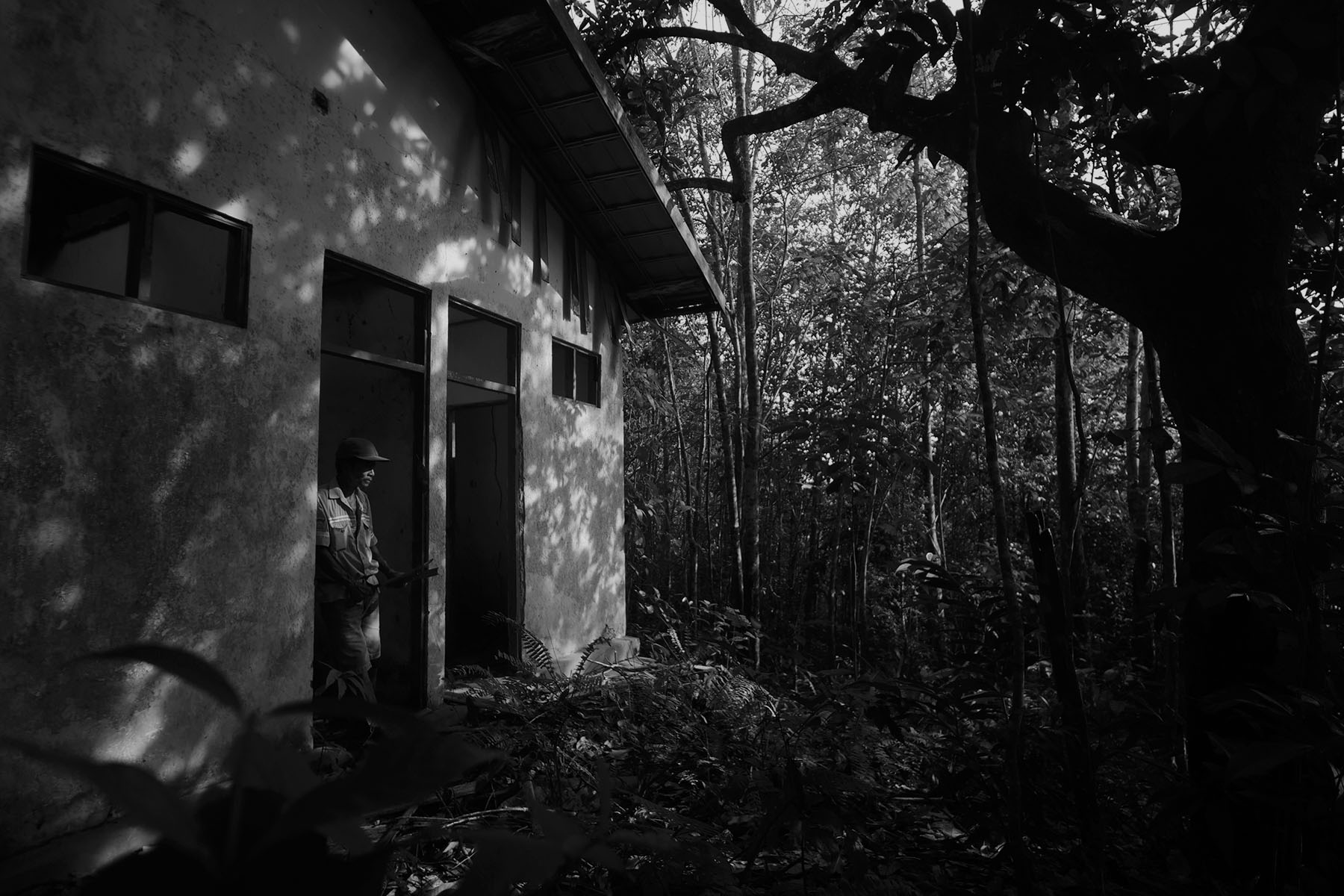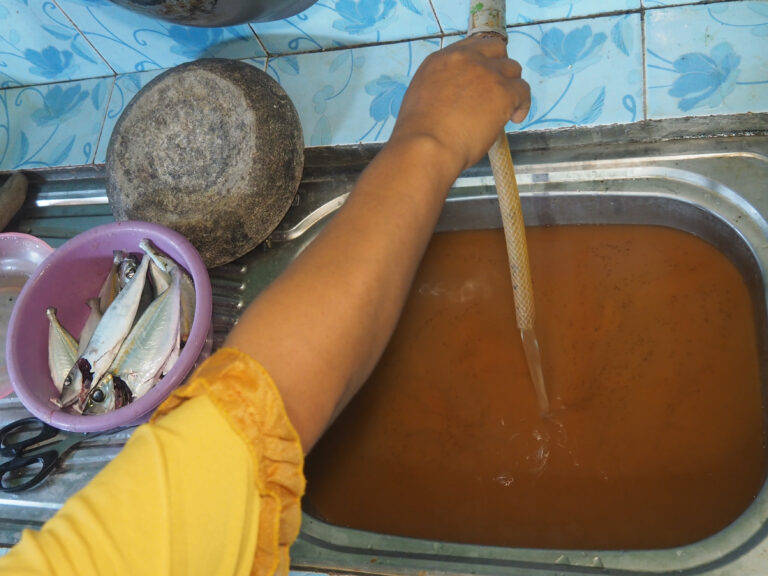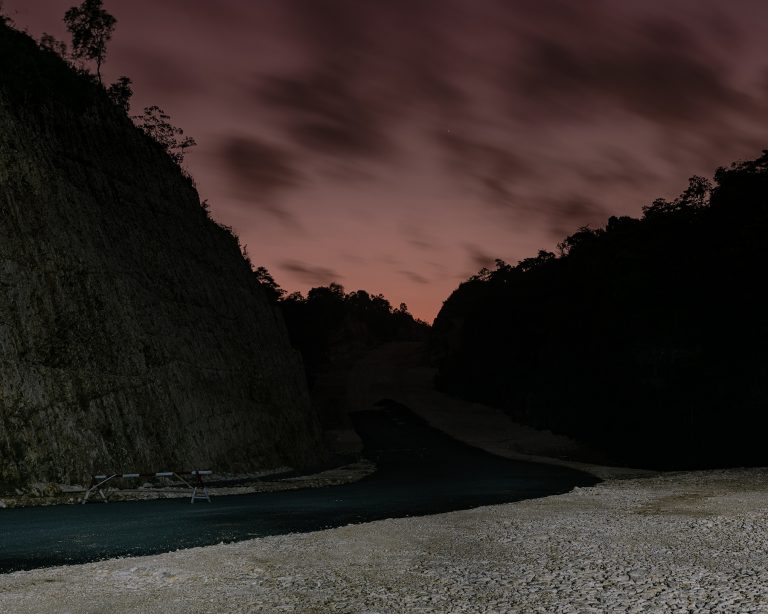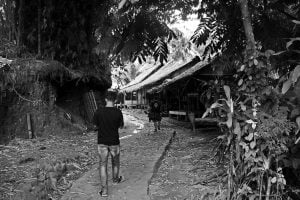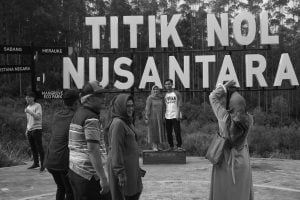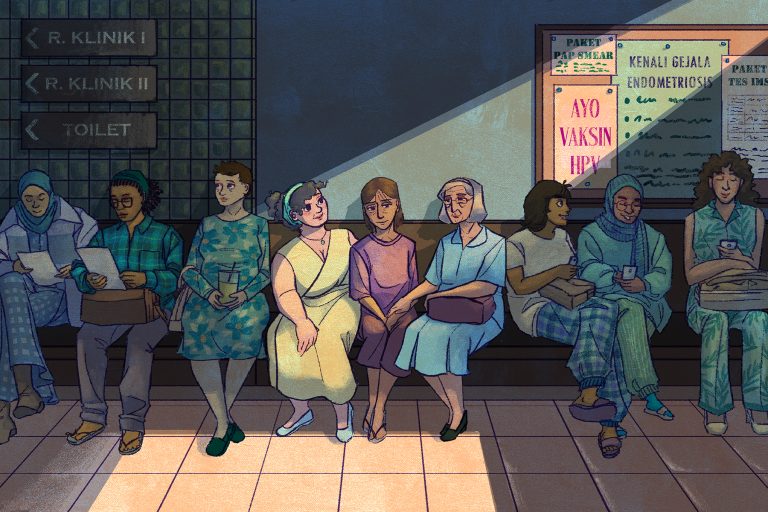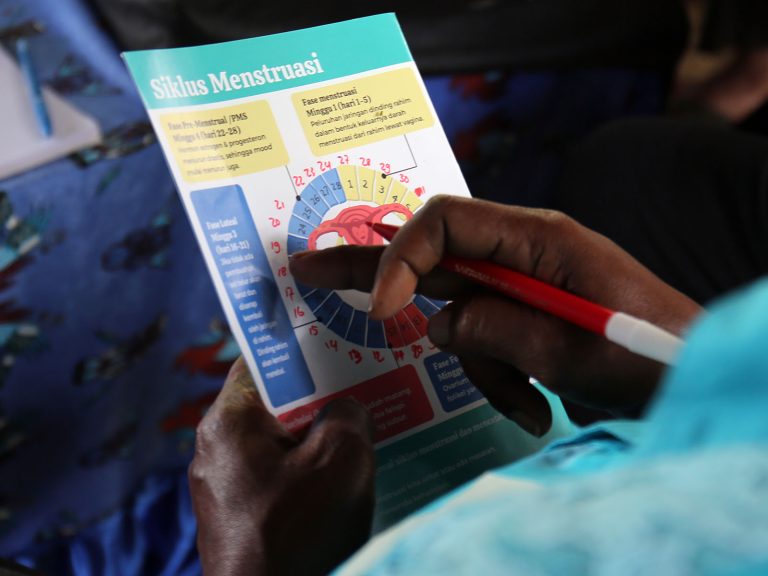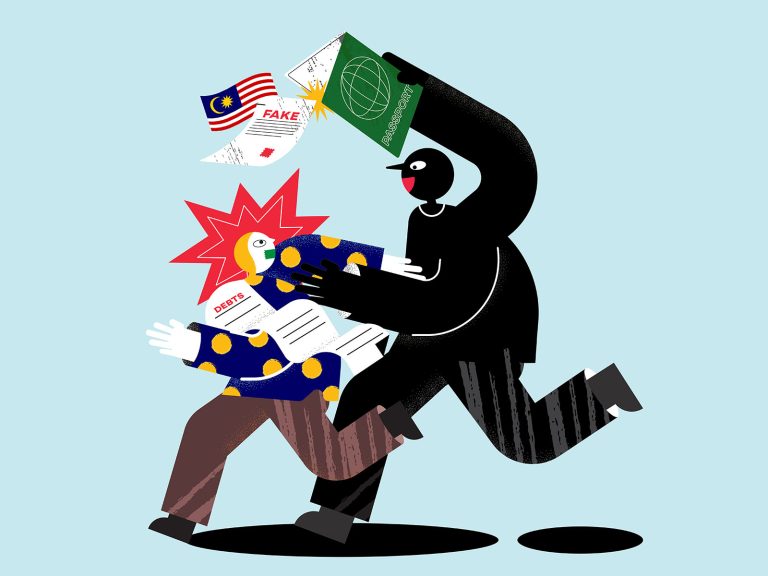Wonorejo village in South Kalimantan used to be home to transmigrants from Java whose livelihoods depended on rubber plantations. Miner PT Adaro Energy then systematically bought up the land and drove the residents away. Now Wonorejo is deserted, with a network of coal settling ponds where the village once stood.
In 1999, Sulastrinadi, now 62, boarded a warship bound for South Kalimantan to be relocated from his hometown of Semarang, Central Java, as part of a government-sponsored transmigration program.
After a two-day journey, he and his wife arrived at the port of Banjarmasin, the provincial capital, and proceeded more than 200 kilometers northeast to Balangan regency.
The couple and other relocated families in the area drew lots to decide who would settle where. Sulastrinadi secured a plot of land in a place called Hamlet 10, which was soon merged with Hamlet 8 and Hamlet 9 to form the village of Wonorejo, a Javanese word meaning “prosperous forest”.
Families relocated under the 1972 Transmigration Law were entitled to a house with two bedrooms and a yard, as well as 2 hectares of land for plantation, but in practice, obtaining the promised assets was often a years-long challenge.
The first two years were tough for the families of Wonorejo. The land was not fit for traditional plantation, but after some years of experimentation, they began cultivating rubber and their situation began to improve. Sulastrinadi eventually expanded his own rubber plantation to 5 hectares, which brought him enough money to buy five motorcycles and to see his three children through high school.
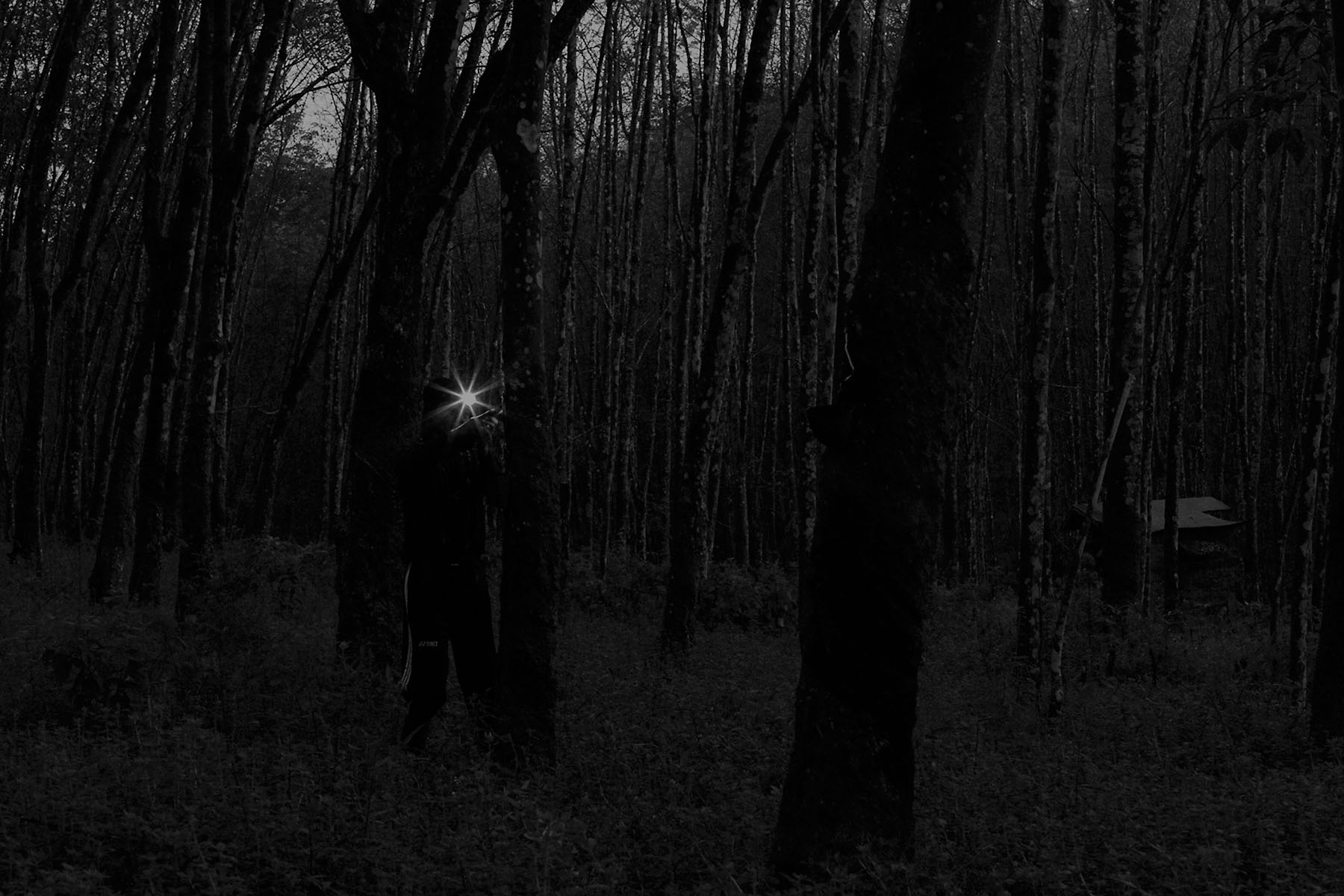
Unwelcome Arrival
In 2006, the village’s fortunes began to turn. Mining company PT Adaro Energy had developed plans to build a mining facility in Wonorejo. Eventually, after years of pressure and attrition, the company managed to displace the whole village.
Adaro was among the first holders of the coal contract of work (PKP2B) established in 1982 in South Kalimantan. It developed mines in Tabalong and Balangan regencies, with 35,800 ha of concessions, and commenced commercial coal production in 1992.
“When I got here, there was already an Adaro office in Dahai [another village in Balangan]. But I never had any idea that it would enter [our village],” said Sulastrinadi.
Adaro’s mines, at the time, were 5 kilometers away from Wonorejo.
After 20 years of good fortune from the rubber plantations, the villagers were approached by people claiming to represent Adaro. They said that the village of Wonorejo would be turned into a coal settling basin.
In response to the news, many villagers began selling their land, but some relented only after a fight.
“I actually felt at home in Hamlet 10. But after Adaro got here, I was frightened. The people in Hamlet 10 were unsettled by Adaro’s terms of purchase. I was intimidated. If we didn’t accept the terms we would not get the money and we would lose our property,” said Sulastrinadi in March of this year. “All my neighbors accepted the proposal. Adaro made a clever move. They didn’t send someone who looked like a guy next door but someone who looked like a thug to [survey the land],” he said.
Sulastrinadi said they did not survey and appraise the plots individually, according to the villagers’ deeds, but rather set one price for everyone and appeared to make deals randomly. Sulastrinadi said some villagers had found out later that someone else in the village had sold their land without their approval.
The villagers gradually trickled out, and only a few attempted to hold on to their land.
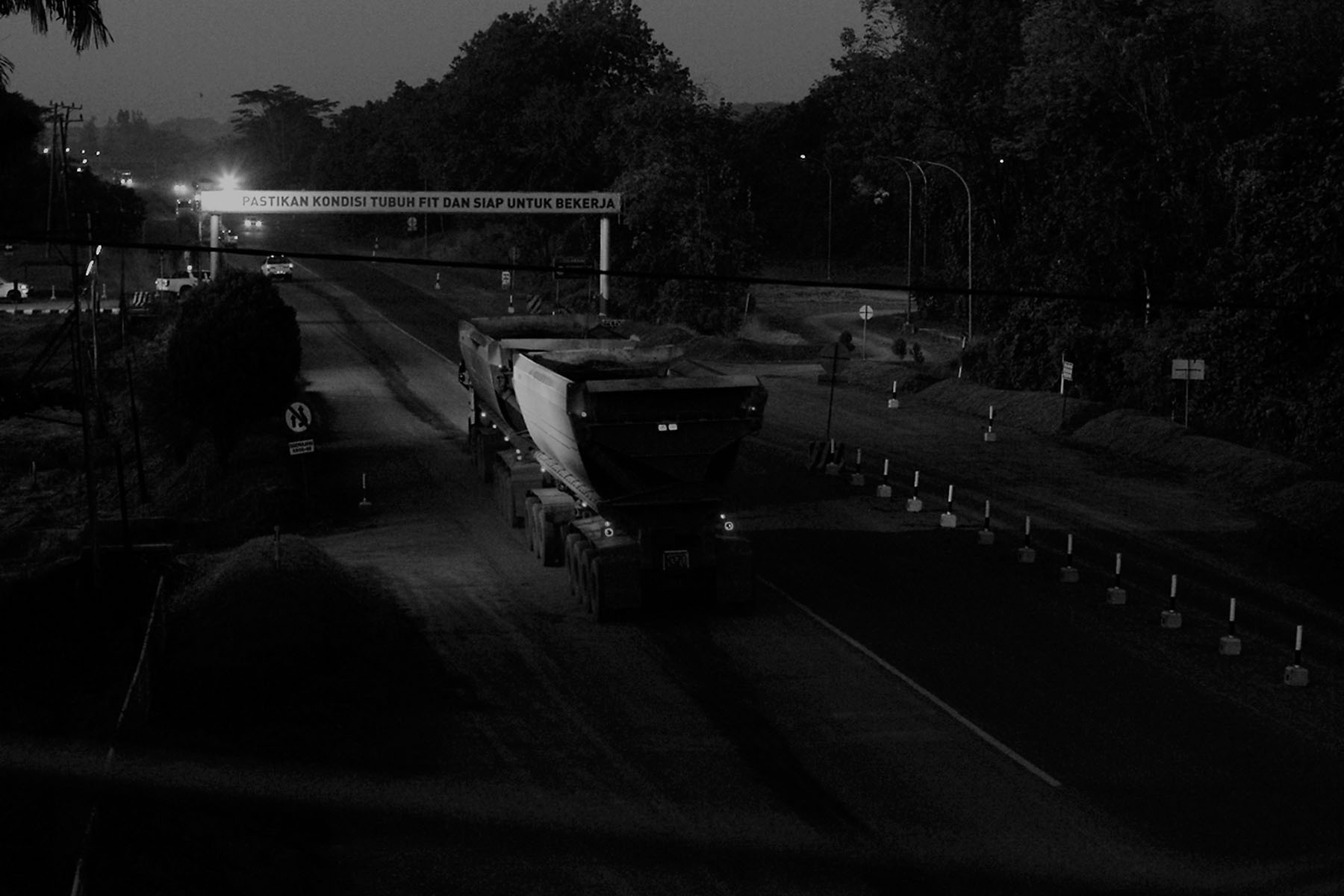
Forced Felling
One morning in 2020, Wonorejo resident Sriyatmi Endah went out to tap her family’s rubber trees with one of her children. Her husband, Bambang Sujono, could not join because he was ill.
As she was extracting the natural latex from a tree, four excavators appeared and started to thrust their mechanical arms into rubber trees.
“Excuse me, Pak. Why are you doing this?” asked Sriyatmi, according to her recollection.
“It’s about time, Bu,” one machine operator responded.
“What do you mean? I requested four months more,” said Sriyatmi.
She said she tried to wrest control of one of the machines from the operator but was unable to. She then called her husband Bambang.
“It’s fine. It’s about time,” said Bambang on the phone.
Sriyatmi said she still remembered that encounter as the moment she lost her rubber trees.
Sriyatmi and Bambang had moved from Klaten, Central Java, to South Kalimantan in 1988 under the New Order regime. The government had promised them land to cultivate, but it was hard work to obtain it. The couple first had to work as farm hands on a state-run plantation.
In their first two weeks as transmigrants, they were made to grow plants, cut grass and water trees for a weekly salary of about 62 US cents.
It took some seven years for the family to accumulate enough money and bargaining power to buy the land and obtain the ownership certificates that the government had promised in the first place. Sriyatmi and Bambang got 5 hectares of land.
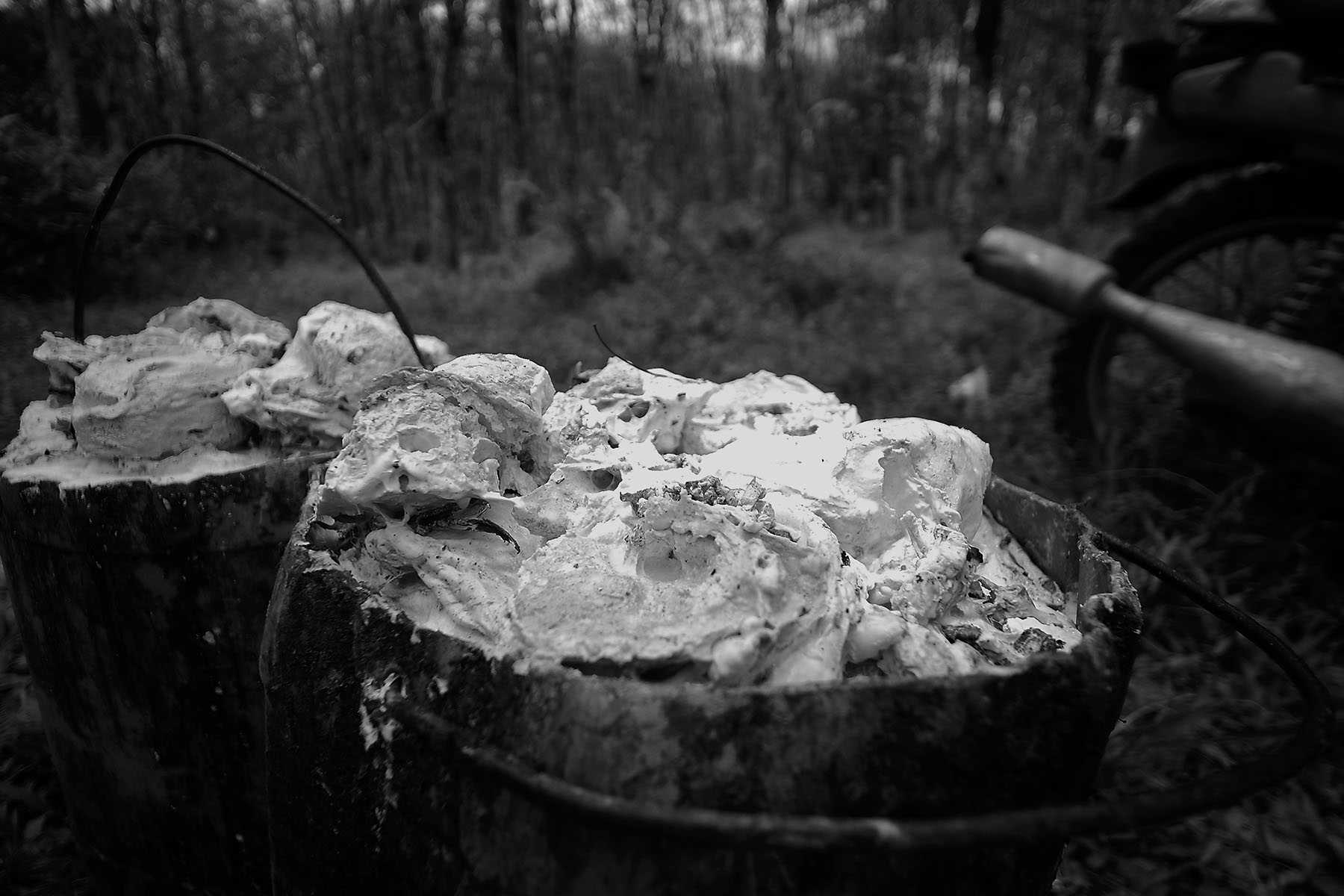
Holdouts
Sriyatmi and Bambang were some of the last residents of Wonorejo to leave the village. The couple sold their land in 2019 and moved to a neighboring district.
Sulastrinadi, meanwhile, had moved in 2010 to the village of Mungkur Uyam in another adjacent district, Juai.
Sriyatmi and Sulastrinadi said the villages had many stories of the trials of selling their land. Many failed to get the promised price and some failed to get any money at all, as strangers had come and claimed that they were the rightful owners of the land. So when Sriyatmi finally decided to sell, she had to prove thoroughly to Adaro that she was indeed the rightful owner of the property.
“I felt like I was a beggar in front of Adaro,” Sriyatmi said, noting that she had to repeatedly show her land deed to the company. She used the money she received from Adaro to buy some land in her new home, but the plot was only about half the size of her former Wonorejo possessions.
The forced relocation was a double misfortune for her. She felt the compensation was unfair, and she lost potential future revenue from her mature rubber trees in Wonorejo. She said the trees in her new plantation were a fraction of the size and she only got about half the latex per tree.
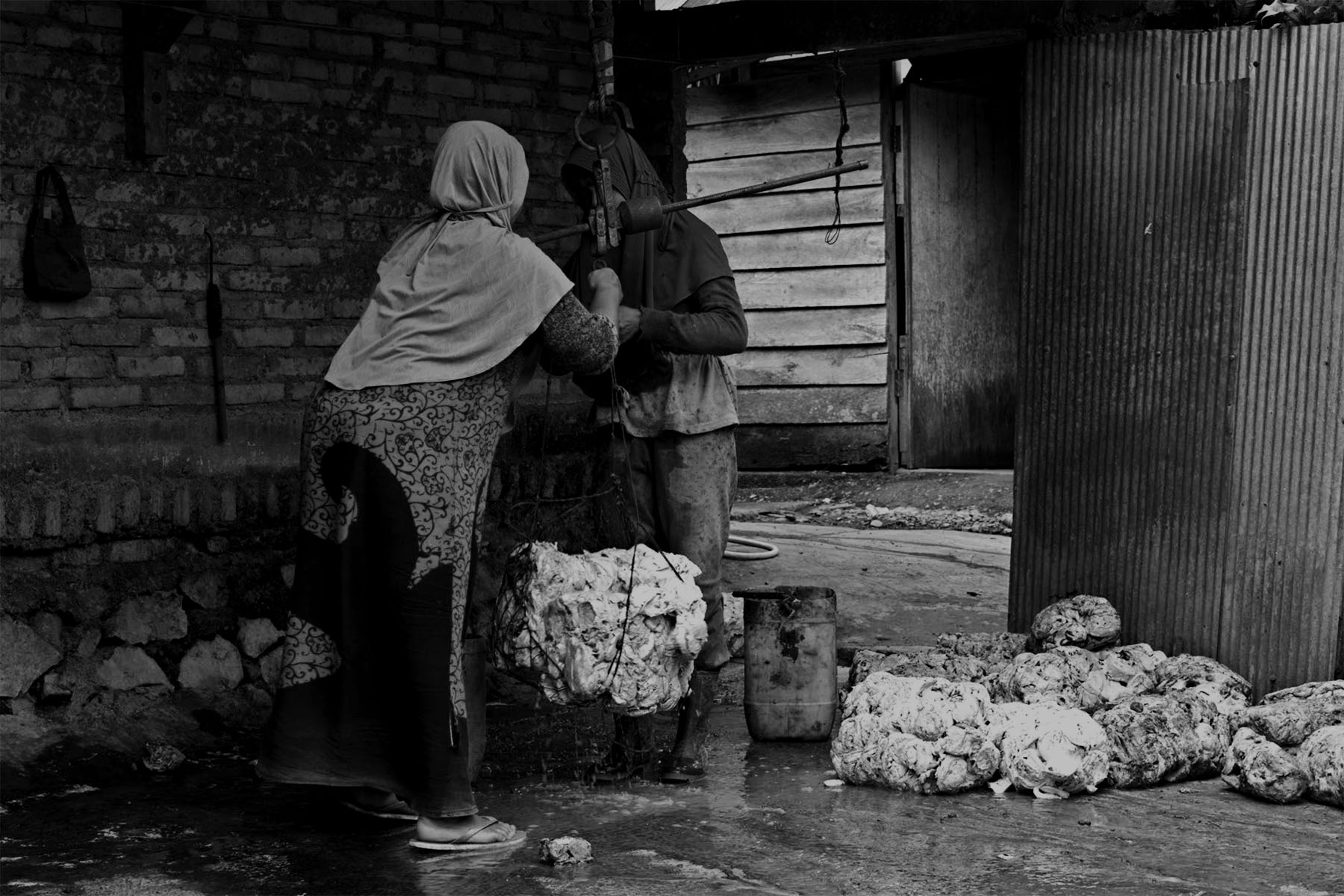
Lower Rubber Productivity
The rubber tree harvest decreased further over time. The planters believed this was a result of the nearby mining operations, including the use of explosives and heavy equipment.
“I think [the mining] caused vibrations in the land, not to mention when steel wheel rollers passed by our houses, which shook us,” said Sulastrinadi. He believed that the activities associated with the mine had damaged the rubber trees’ roots.
Whatever the cause, after Adaro began operating in the area, the latex yield fell to 10 to 20 kilograms from the former yield of 40 to 50 kilograms per (more or less) 800 trees.
Dry, thick rubber sap sold for Rp 10,000 per kilogram, and wet, runny sap sold for Rp 8,000 per kilogram. To produce the former type, tappers had to wait two weeks after shaving a thin layer of fresh bark off the tree.
Amid the decrease in latex production, villagers noted groundwater and river contamination that they attributed to the coal mine. The neighboring village, Sumber Rejeki, saw similar degradations in water supply.
Not all Wonorejo residents had land. Those who did not worked as plantation hands in the village and earned no money from the Adaro buyout. Not knowing where to go, many decided to stay.
When Adaro began working on the purchased land in 2010, those who had stayed behind asked for three more months to find a new place.
Adaro refused the request. Eventually, under the escort of policemen from precincts in four regencies, the remaining residents were evicted.
“They stayed here for days,” said former Wonorejo resident Sari, referring to the security forces. She was in high school at the time of the eviction.
She watched as her parents disassembled their house and set out their moveable possessions by the roadside. The family built a small makeshift camp under a rubber tree. Sari lived there for almost two years before the company dislodged the family for good. Some of the remaining villagers took shelter in mosques, village halls or other community facilities.
“Out of the blue, the police came in throngs. We were forced to tear down our house to pieces. It had to be done in one day. There was no compensation for that, not even a single nail,” said Masrani, a former Wonorejo resident.
He, like Sari, had no option but to live under a rubber tree. He built a makeshift camp for his family. They used the nearby river water for drinking, cooking, and washing.
Masrani played cat and mouse with Adaro’s security forces, building the camp deep in the rubber plantation.
“When they found our camp, they would come to us and say, ‘This is our property. You should get out of here, or else we will sue you.’ Then we had to move out. We had to repeat the process for four years,” said Masrani who now lives in Sumber Rejeki.
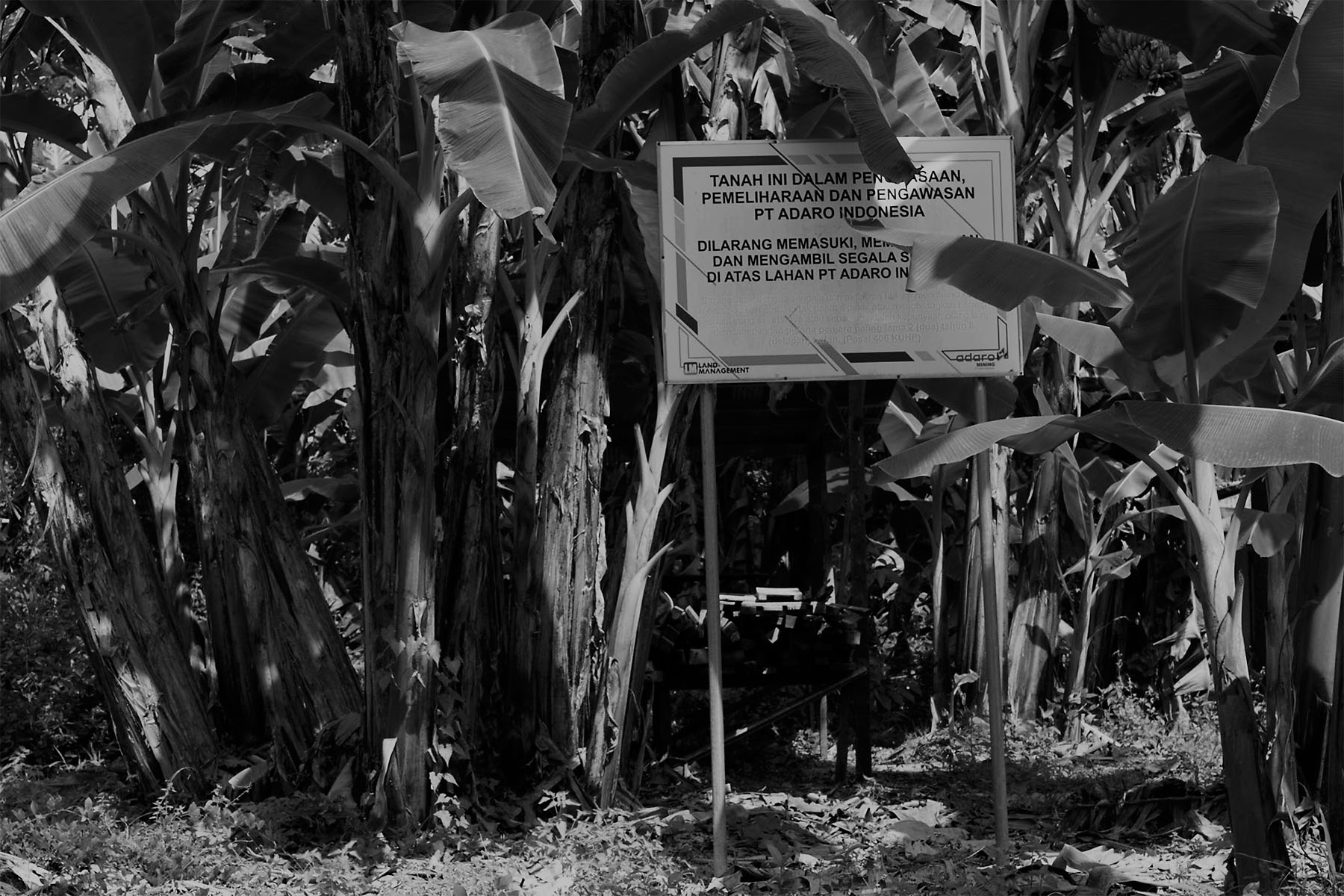
Settled, Unsettled
In March of this year, the former village of Wonorejo was deserted.
No inhabitants were in sight, and nearly all of the village had been transformed into a complex of coal settling ponds. Wastewater was being channeled through pipes from large ponds into smaller ones before being discharged into the Tutupan River.
The ponds were not fenced in. The company had installed some signs nearby prohibiting swimming, bathing, and fishing.
A dilapidated schoolhouse and an abandoned village health post remained in Hamlet 10. Other buildings were engulfed by forest growth or had been torn down to make way for more settling ponds.
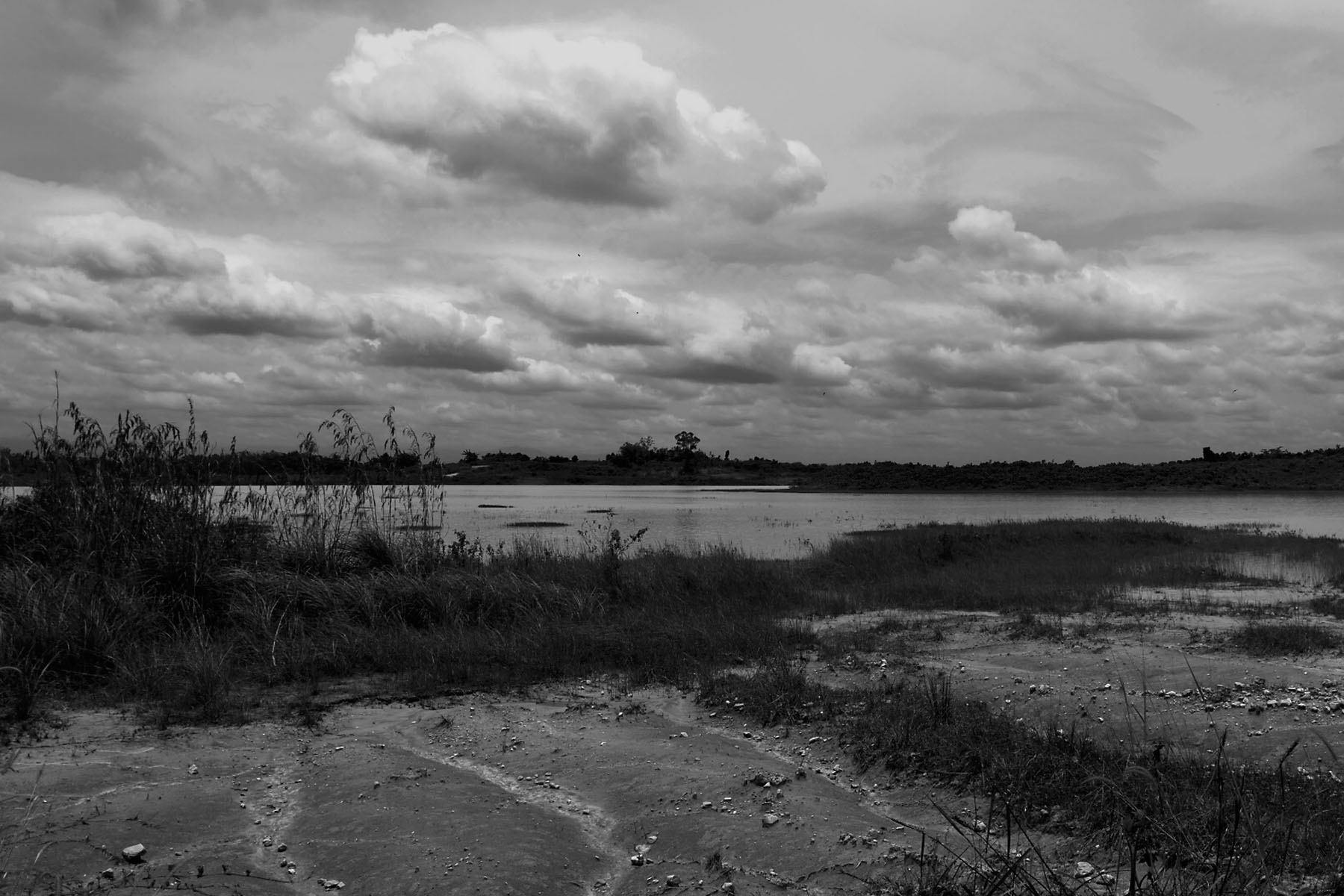
Expansion Ambitions
Adaro’s mining license will expire in October 2022. The company, whose key shareholders include Garibaldi Thohir, the brother of State-Owned Enterprises Minister Erick Thohir, said the license’s renewal had been proposed last year.
The Energy and Mineral Resources Ministry is reportedly still evaluating the proposal.
Kisworo Dwi Cahyono, the director of the South Kalimantan chapter of Wahana Lingkungan Hidup (Walhi), an environmental group, urged the government to thoroughly assess the impact of Adaro’s mining operations on the province, including the eviction of Wonorejo’s residents.
“The government should have acknowledged the [village as a] community-managed area,” said Kisworo.
Project Multatuli contacted Adaro Energy’s head of corporate communications, Febriati Nadira, on April 15 to inquire about the Wonorejo land acquisition and the company’s plan to renew its mining license for the area.
Febriati asked to be sent a list of Project Multatuli’s questions, which she was provided. However, as of the publication of this article, she had not responded to the questions.
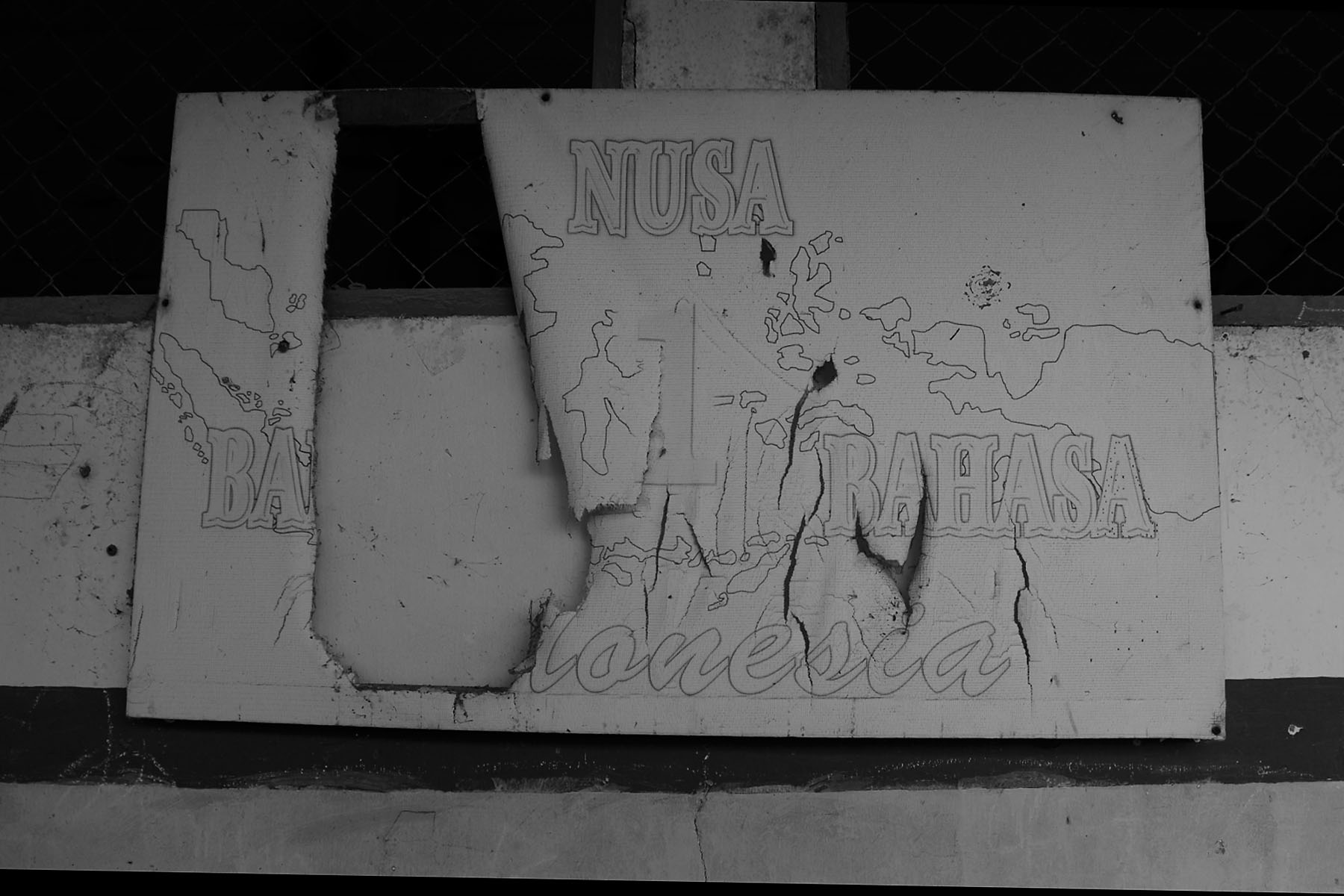
According to Walhi, of the approximately 3.7 million hectares of South Kalimantan, 1.2 million are under the control of mining companies and another 620,000 hectares have been conceded to palm oil companies.
Sugianor, a youth leader in Balangan, said the government should have prevented Adaro from expanding as it had caused a village to disappear.
“What if someday half of a district is also gone?” said Sugianor.
This is the second report in the #CoalFinancing series supported by Change.org and the #BersihkanBankmu Coalition.


